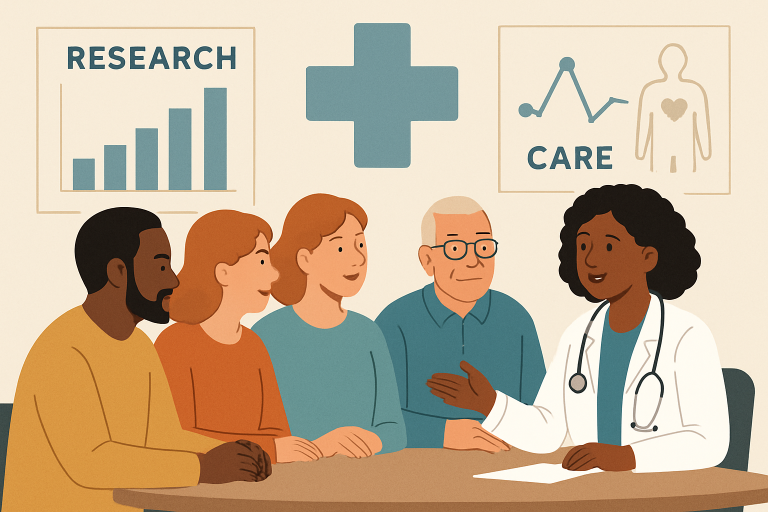Participating in clinical trials offers a chance to contribute to medical progress and gain health benefits. These studies evaluate new drugs, therapies, and devices for safety and effectiveness. Participants often get early access to treatments, medical oversight, and help shape future healthcare. Their contributions build the science behind better treatments and quality of life. Joining a trial is an investment in personal health and medical advancement for future generations.
Clinical trials are essential in the ongoing effort to improve medical treatments and develop new therapies. People who choose to participate in these research studies gain access to promising treatments while contributing to scientific progress that may help countless others. Understanding the pros and cons of taking part in clinical trial participation can empower individuals to make educated and confident choices about their health and role in the medical community.
For many, participating in clinical trials means benefiting from advanced therapies before they become widely available. These studies are not just for personal gain—they also serve the broader population by helping medical experts discover more effective ways to prevent, detect, and treat diseases. The process delivers significant value to both present and future patients.
Participants are often surprised by the comprehensive care and close medical supervision they receive during the study. This personal attention, along with a sense of contributing to the greater good, makes clinical trial participation an attractive option for those interested in both their own health and the well-being of society as a whole.
In addition, by participating in a clinical trial, individuals access resources and learn more about their own health conditions. These studies offer a unique chance for deeper health insights paired with professional support.
Access to Cutting-Edge Treatments
Early access to new and potentially more effective treatments is a leading reason people join clinical trials. Participants, especially those with conditions unresponsive to existing therapies, often find hope in novel medications or interventions that aren’t available outside a research setting. These opportunities allow patients to pursue innovative health solutions that might one day set new standards of care.
According to the National Institutes of Health, clinical trials are vital for identifying new strategies that can improve or save lives. These developments are critical, especially for those facing rare or challenging diseases where conventional treatment options are limited.
Comprehensive Medical Care and Monitoring
During a clinical trial, participants undergo rigorous monitoring, receiving specialized attention and frequent evaluations from a team of experts. Regular check-ups, tests, and observations ensure that any changes in health are identified and managed promptly.
This elevated care level can sometimes reveal updates in a participant’s health status earlier than traditional medical oversight would. A close clinician-patient relationship develops, fostering a supportive environment focused on optimal health outcomes for every participant.
Contributing to Scientific Research
Taking part in a clinical trial is a meaningful way to support advances in medical science. Participants’ experiences and results help researchers determine whether new treatments are effective and safe, laying the groundwork for future therapies. This contribution can inspire a sense of pride in individuals, knowing they are aiding others with similar health conditions and participating in the progress of medicine.
Because diverse participation is crucial for broad, applicable findings, your involvement in clinical trials can help researchers better serve a range of populations and needs.
Financial Considerations
Expense is a major concern for many patients, especially those needing ongoing care. Many clinical trials cover the costs of innovative therapies and related doctors’ appointments, tests, and sometimes travel or lodging. Compensation for time and inconvenience is also commonly provided.
This financial relief makes cutting-edge care available to more people and can help ease the pressures of accessing new treatments, particularly for those burdened by healthcare expenses.
Enhanced Understanding of Personal Health
Participants often discover a more nuanced and informed view of their health. Through detailed discussions, education provided by study staff, and frequent assessments, individuals learn more about their diagnosis, treatments, and overall wellness.
This knowledge empowers participants to take an active role in managing their own health, potentially resulting in better long-term outcomes and a greater sense of control over their medical journey.
Ensuring Diversity and Accessibility
Many clinical trial sponsors work to include participants from diverse backgrounds and varied locations to ensure research benefits all populations. Advances in remote technology allow more people, regardless of geography or socioeconomic status, to engage in studies that were previously inaccessible. Such inclusive practices help minimize health disparities and increase the relevance of trial results for everyone.
Addressing Privacy Concerns
Protecting the privacy of participants is a core priority. While some people may have concerns about sharing personal health data, studies show that many participants believe the societal benefits outweigh these risks. With appropriate safeguards, clinical trials strive to handle data transparently and keep participants’ information secure.
Altruism is often a key motivator for participants, who recognize the positive impact their involvement can have. Still, it’s important to review the privacy and confidentiality policies for each study before enrolling.
Conclusion
Clinical trial participation provides unique advantages, from first-look access to groundbreaking therapies and comprehensive care to contributing to the greater good. Financial support and personal health empowerment further enhance the appeal for many. By joining a clinical trial, individuals can make a difference—both in their own treatment journey and for the larger medical community.
